Press Release – Platform publishes list of ships dismantled worldwide in 2020
The shipping industry continues to exploit workers and the environment for profit
According to new data released today by the NGO Shipbreaking Platform, 630 ocean-going commercial ships and offshore units were sold to the scrap yards in 2020. Of these vessels, 446 large tankers, bulkers, floating platforms, cargo- and passenger ships were broken down on three beaches in South Asia, amounting to near 90% of the gross tonnage dismantled globally.
Ships are considered hazardous waste under international environmental law as they contain many toxic materials and substances within their structures, and onboard as residues. These toxics include, amongst others, cadmium, lead batteries, asbestos, mercury, ozone depleting substances, PAHs, and residue oils, which all need to be managed in a safe and environmentally sound manner. Their export from developed to developing countries is banned by UNEP’s Basel Convention.
On the beaches of Alang in India, Chattogram in Bangladesh, and Gadani in Pakistan, where near 90% of the global world tonnage was scrapped last year, the negative consequences of shipbreaking are real and felt by many. Workers – often exploited migrants, some of them children – are exposed to immense risks. They are killed or seriously injured by fires and falling steel plates, and sickened by exposure to toxic fumes and substances. Coastal biomes, and the local communities depending on them, are devastated by toxic spills and air pollution due to the lack of infrastructure to contain, properly manage and dispose of the many hazardous materials embedded in the ships.

Last year, at least 10 workers lost their lives when breaking apart vessels in Bangladesh. At least another 14 were severely injured. Despite repeated attempts to obtain official statistics, no information on accidents at the Indian and Pakistani yards has been made available. The sector suffers from a serious lack of transparency, and it is expected that many accidents go unreported. Many more workers suffer from cancers and other occupational diseases. The detention of BBC reporters and confiscation of footage from France 2 journalists by local officers from the Gujarat Maritime Board (GMB), which controls the port in Alang, reveals how the industry seeks to thwart public scrutiny of the deplorable conditions at the yards.
DUMPERS 2020 – Worst practices
Greece tops the list of country dumper in 2020. Greek owners sold 48 ships for scrapping in South Asia, most of which were beached in Bangladesh and Pakistan.
“Whilst some EU Member States are increasingly cracking down on environmental crime, almost a quarter of the tonnage broken in South Asia was owned by European shipping companies. Greece in particular has systematically closed its eyes to the deplorable end-of-life track record of its shipping industry,” says Jenssen.
The ‘worst corporate dumper’ prize goes to South Korean company Polaris Shipping. Under pressure following serious incidents on the Stellar Daisy, which sank in the Atlantic with the loss of 22 lives in 2017, and on the Stellar Banner, which was scuttled off the coast of Brazil in June, Polaris Shipping scrapped 11 of its carriers in 2020. All units were beached in Bangladesh and Pakistan. Four major accidents, causing the death of one worker, occurred during the dismantling of Polaris’ vessels in Chattogram. On 22 June, during an illegal night shift at Jumuna Ship Breakers yard, Abdul Halim was hit by an iron piece in the stomach on the ship Stellar Knight. On 1 July, Rohul fell and broke five ribs while dismantling the Stellar Iris at KSB Steels yard. On the same day, Mozaffor fell from the Stellar Journey at RA Shipbreaking yard. Finally, on 25 December, Md Ibrahim was killed when hit by a large iron piece while breaking the Stellar Hermes at Kabir Steel’s Khawja yard. According to shipping media Splash, middleman scrap-dealer GMS is linked to several of Polaris’ recent demolition sales.
Another South Korean company, Sinokor, is runner-up for worst corporate practice. Sinokor sold four vessels for scrapping in Bangladesh last year. On 24 March, two brothers, Shumon Das and Nironjon Das, died due to toxic gas inhalation while working in the engine room of the tanker West Energy at Kabir Steel’s Khawja shipbreaking yard. Sumon and Nironjon left five children behind. In the same accident, two other workers, Kawser and Habib, were also exposed to the toxic gas and fell sick.
Brazilian state-owned company Petrobras comes third for worst corporate practice. Three years have passed since civil society organisations and trade unions urged the Brazilian government to stop the dumping of toxic ships on South Asian beaches. Yet, oil giant Petrobras dumped nine of its old tankers in South Asia last year alone. The units were auctioned off to unscrupulous scrap-dealers, also known as cash buyers.
“To avoid such deplorable practices in the future and ensure the enforcement of international legislation on hazardous waste exports, Brazilian authorities need to introduce stricter requirements for the public auctions of Petrobras’ end-of-life vessels,” says Nicola Mulinaris, Communication and Policy Officer at the NGO Shipbreaking Platform.
Berge Bulk, Costamare, Eurobulk, Evergreen, K-Line, Maersk and Swire & Sons are other well-known shipping companies that dumped their toxic ships on South Asian beaches in 2020.
In October, a worker lost his life during the scrapping of two Transocean’s rigs at Isiksan, a Turkish ship recycling yard included in the EU list of approved ship recycling facilities. The accident is a strong reminder of the challenges related to both containment and safety when dismantling offshore units. More than half of the oil and gas units scrapped last year ended up on the beaches of South Asia, including units owned by Noble Corporation, Tidewater and Valaris, as well as top dumper Petrobras. The mercury-laden FSO tanker JNAT was, on the other hand, banned from entering Bangladesh and India after NGOs called upon authorities to halt the import.
Environmental and labour laws that regulate ship recycling exist, but they are ignored and easily circumvented by ship owners, often with the aid of cash buyers. These pay the highest price for end-of-life vessels and typically re-name, re-register and re-flag the vessels on their last voyage to the beaching yards. Almost half of the ships sold to South Asia in 2020 changed flag to one of the black-listed flags Comoros, Palau and St Kitts & Nevis just weeks before hitting the beach. At least 14 of these flag changes enabled ship owners to circumvent the EU Ship Recycling Regulation. [1]

In a landmark ruling last year, a Norwegian court sentenced ship owner Georg Eide to six months unconditional imprisonment for having assisted cash buyer Wirana in an attempt to export the Tide Carrier to Pakistan for scrapping. Several other cases of illicit traffic are under investigation: unravelling the murky practices of shipbreaking, they highlight the importance of conducting due diligence when choosing business partners.
Due to the pandemic, the cruise shipping sector has been forced to downsize, with many ship owners, such as Carnival Corporation and Pullmantur, taking steps to reduce operating expenses, including the retirement of relatively young vessels. Carnival Corporation receives the 2020 award for best ship recycling practice. Leading by example, the American cruise shipping giant sets a standard the remaining of the cruise and shipping sector can follow.
Clean and safe solutions are already available. Less than a million Light Displacement Tonnes (LDT) were recorded recycled in EU-approved facilities in 2020, which represent a minor fraction of what these yards are able to handle.

For the data visualization of 2020 shipbreaking records, click here. *
For the full Excel dataset of all ships dismantled worldwide in 2020, click here. *
* The data gathered by the NGO Shipbreaking Platform is sourced from different outlets and stakeholders, and is cross-checked whenever possible. The data upon which this information is based is correct to the best of the Platform’s knowledge, and the Platform takes no responsibility for the accuracy of the information provided. The Platform will correct or complete data if any inaccuracy is signaled. All data which has been provided is publicly available and does not reveal any confidential business information.
** UPDATE 10 February 2021 - Teekay Corporation informed us that five ships (i.e. Aegean Leader, Petrojarl Cidade de Rio das Ostras, Navion Bergen, Navion Hispania and Apollo Spirit) have been incorrectly attributed to the company in our 2020 shipbreaking records. The documentation provided by Teekay Corporation shows that the company is not linked to any end-of-life sale in 2020. The Platform has therefore rectified the data concerning the beneficial ownership of these vessels. Whilst the Aegean Leader results to be linked to Japanese company NYK, the other four vessels result to be linked to Altera Infrastructure . Altera Infrastructure was formerly known as Teekay Offshore, from which Teekay Corporation divested its interest on April 30 2019.
NOTE
[1] The EU Ship Recycling Regulation became applicable on 30 December 2018. According to the Regulation, EU-flagged vessels have to be recycled in one of the currently 43 approved facilities around the world included in the EU list. EU-approved ship recycling facilities must comply with high standards for environmental protection and workers’ safety. The EU List is the first of its kind; is the only list of facilities that have been independently audited; and provides an important reference point for sustainable ship recycling. Any ship owner that wants to opt for safe and clean ship recycling can simply choose one of the facilities included on the List. No beaching yard is approved by the EU.
Recent audits by the European Commission in Alang and media reports continue to flag serious concerns related to pollution of the intertidal area; absence of medical facilities; breaches of labour rights and lack of capacity to safely manage several hazardous waste streams, including mercury and radioactive contaminated materials that are typically found on offshore oil and gas units. As highlighted by several NGOs and legal experts at the Center for International Environmental Law (CIEL), a possible inclusion of Indian yards on the EU List of approved ship recycling facilities would further violate international waste legislation, and be in clear contradiction with the EU's new strategic economic and environmental policy initiatives embedded in the Green Deal.
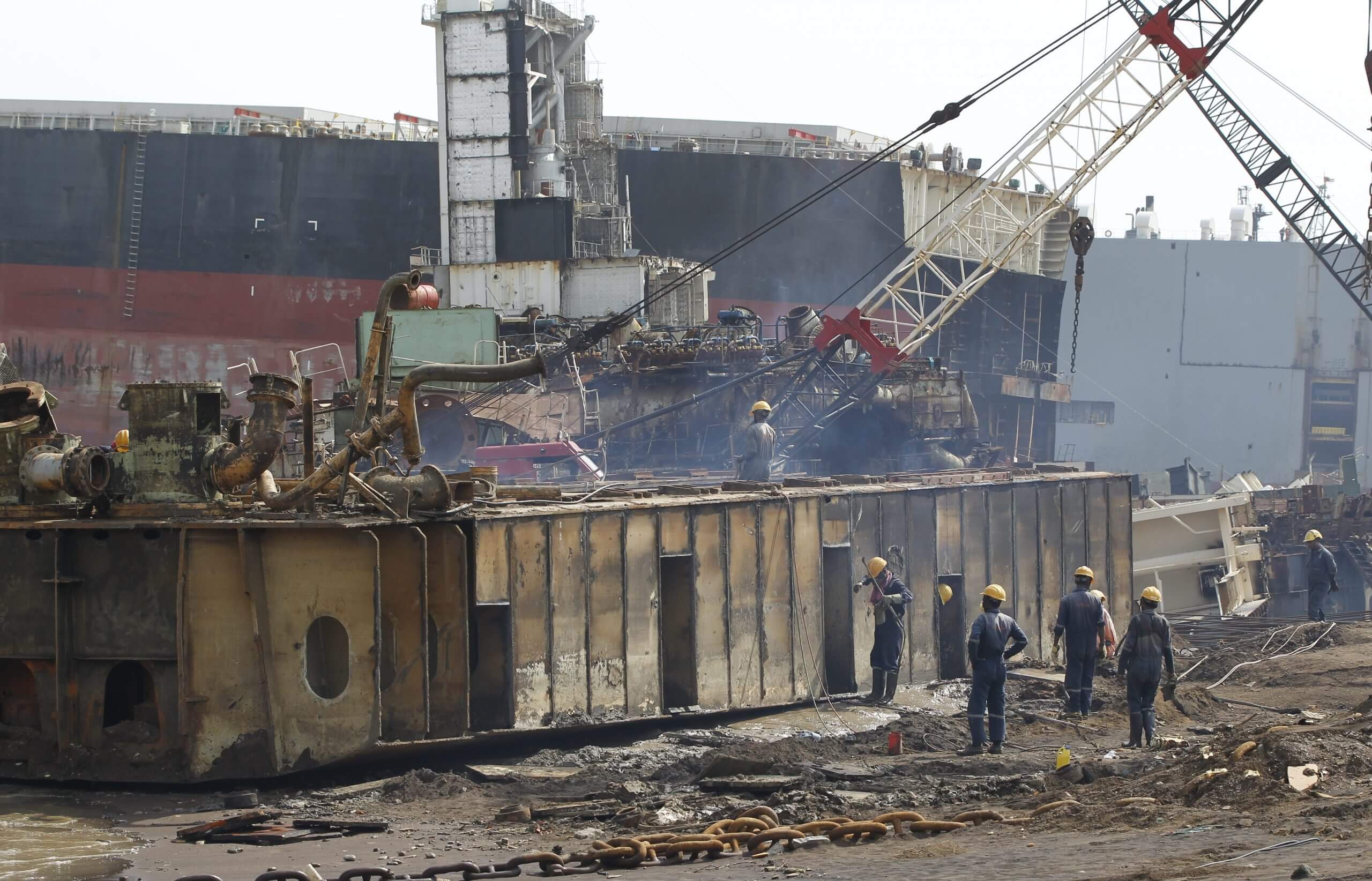
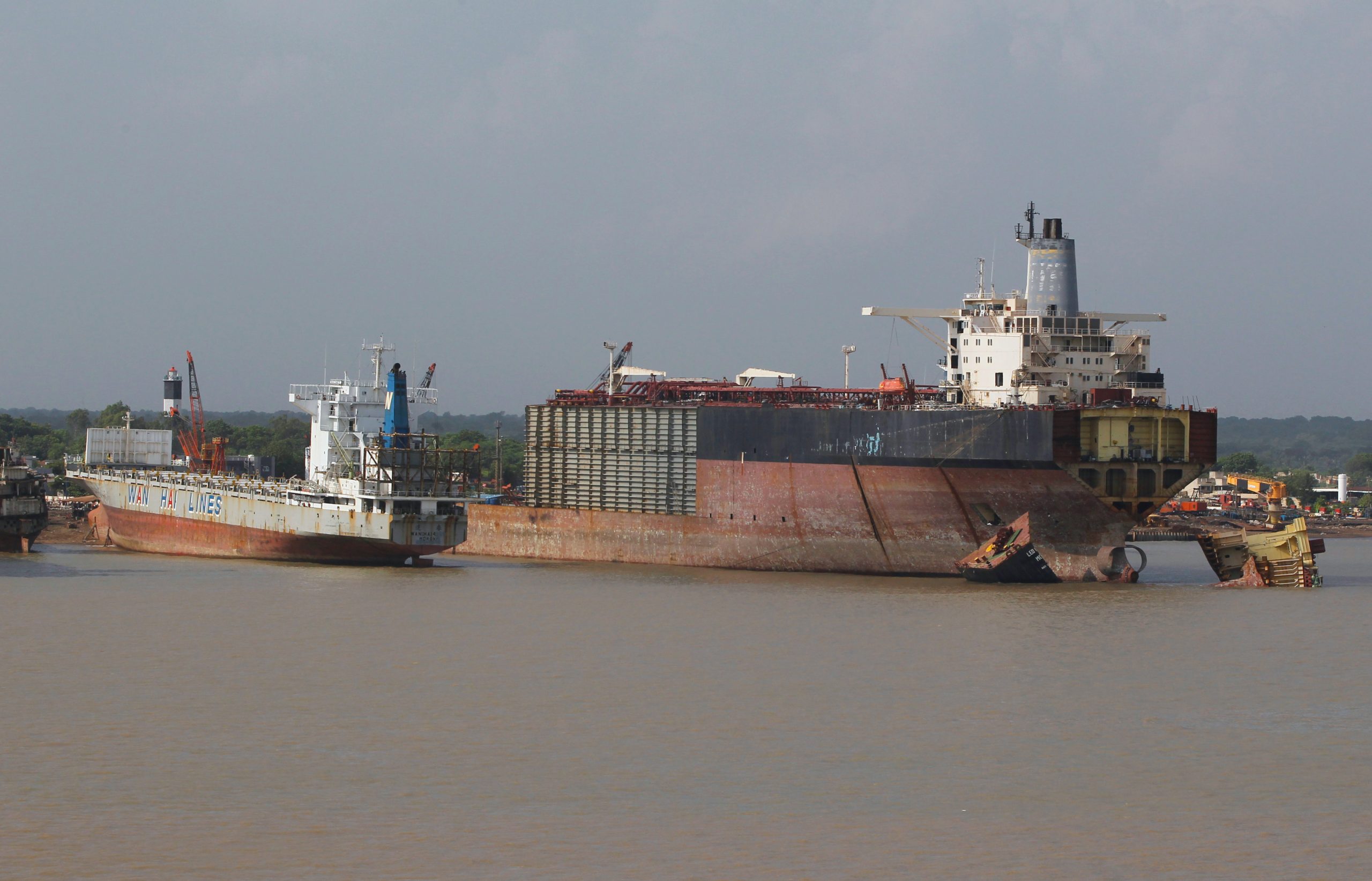
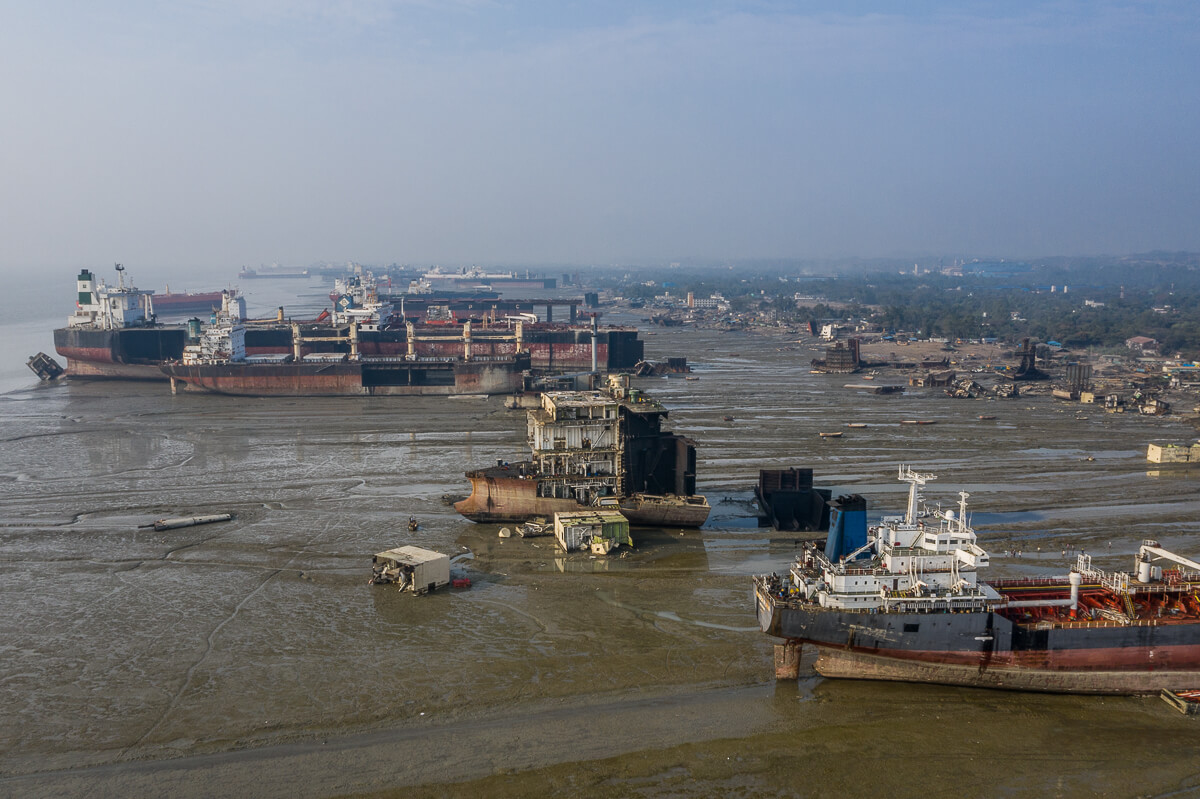
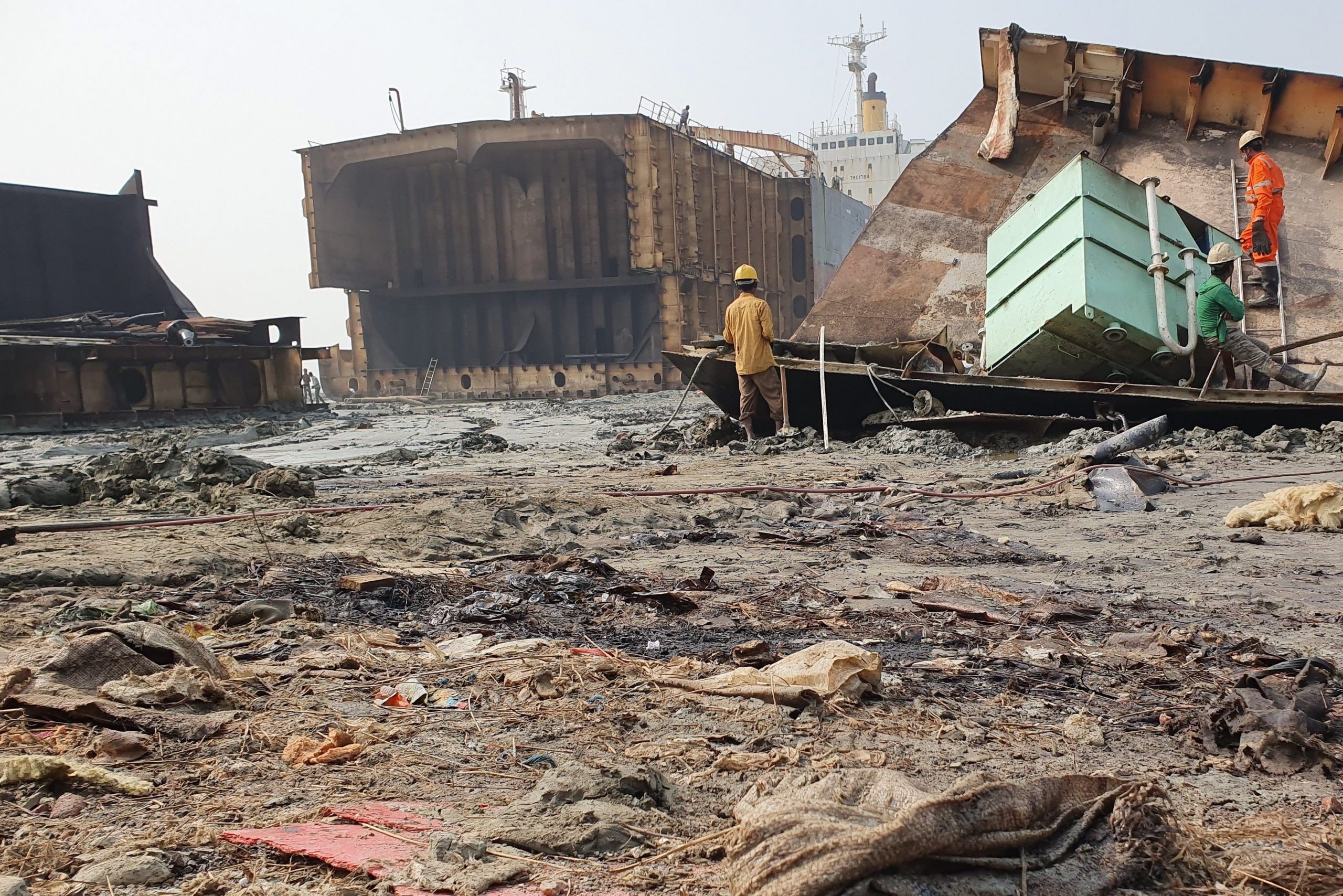
Related news
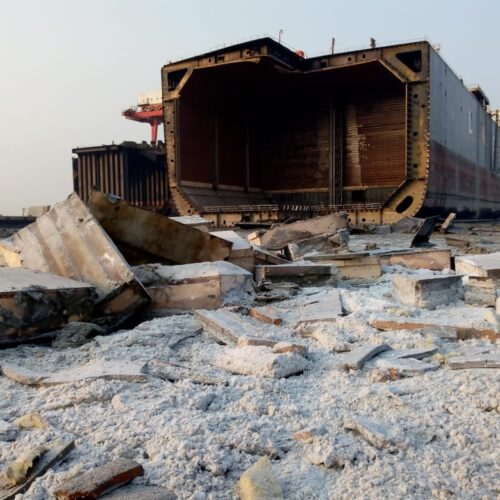
Platform publishes South Asia Quarterly Update #37
Eight workers suffered an accident on South Asian beaches in the first quarter of 2024.
... Read More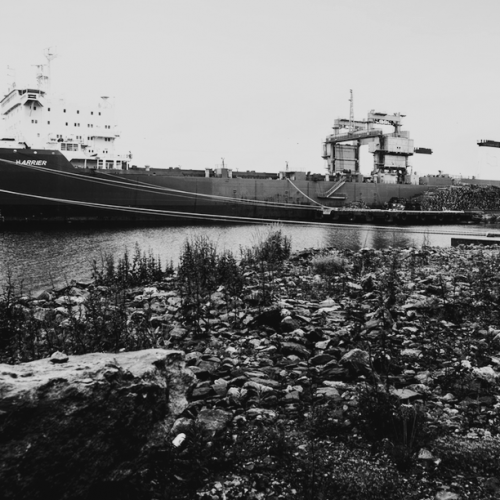
Press Release – Investigations on the Harrier tighten as it reaches Turkey for recycling
Norwegian press DN revealed this summer that Aqualis Offshore and insurance company Skuld Maritime Agency are under investigation for their involvement in the attempt to illegally export… Read More
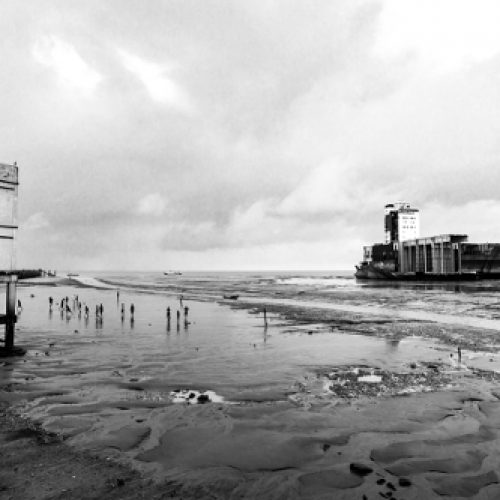
Press Release – Platform publishes list of ships dismantled worldwide in 2016
Read our country-specific press releases: Brazil | Germany | Greece | Italy

Press Release – NGOs warn that Hong Kong Convention will fail to ensure sustainable ship recycling
Treaty to continue toxic business-as-usual on the Beaches of South Asia while undermining efforts for reform.
... Read More
Platform News – SAVE THE DATE: “With Bare Hands” on 3 October 2019 in Brussels
The NGO Shipbreaking Platform invites you to attend the conference With Bare Hands on Thursday 3 October in Brussels (Belgium).
... Read More
Platform News – Violence reaches new level: shipbreaking yard’s private security personnel fire shots and injure seven people
In the morning of 28 March, shipbreaking worker Sumon was killed on a private road inside Kabir Steel yard located North of Bangladesh’s major port city, Chittagong…. Read More

Press Release – Turkish EU-listed yards shaken by two fatal accidents
In the last four months, the Turkish ship recycling industry has been hit by two serious accidents.
... Read More
Platform News – The new lobbyist of beaching, Maersk, ignores concerns of environmental and human rights experts
When Maersk decided earlier this year to sell two end-of-life ships to beaching yards in Alang, India, a broad coalition of European environmental and human rights NGOs… Read More


